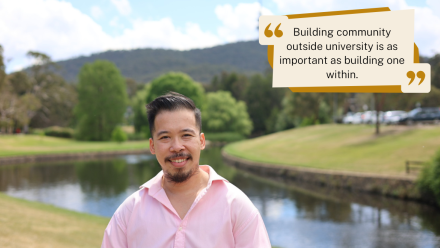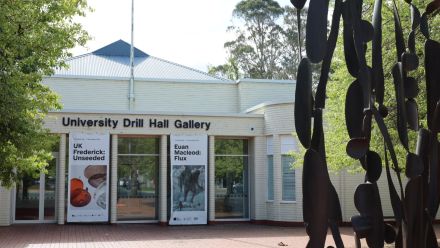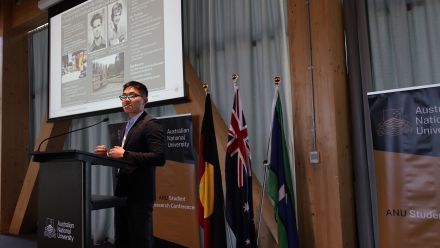Supporting your students and colleagues during Ramadan
Ramadan will begin for Muslims all over the world this week. It is based on the lunar cycle so it begins and ends with the sighting of the crescent moon.
Ramadan is a sacred month full of blessings, abstinence, community, charity, reflection, family, charity, and prayers. It is obligatory for all Muslims to fast, that means not eating or drinking from dawn to sunset. Some people are exempted due to medical or traveling reasons. The holy month ends with Eid al-Fitr, a big celebration to mark the end of the dawn to sunset fasting.
We spoke to members of the ANU Muslim Student Association to learn more about the holy month and ways that non-Muslims can show support to those fasting.
The fosters an environment of inclusivity, security, and encouragement for Muslims on campus. Its membership stands at over 200 ANU students and staff of Muslim faith. The association supports the ANU Muslim community by planning social gatherings for students, facilitating complimentary iftars every evening during Ramadan, educating students on the whereabouts of local mosques and halal food establishments and guaranteeing the availability of in nearly all departments at ANU.
Jahan Barkhadle is a third year studying a Bachelor of Science with hopes of attending medical school after she graduates. She is looking forward to Ramadan and the focus it will bring to the teachings of Islam.
"During Ramadan those that are more fortunate and those that are less fortunate are doing the same thing, fasting together.So, you are aware, while you are fasting, that this hunger is a daily occurrence for some people. It also reminds you that not everyone is able to break their fast with a big feast on their table at the end of each day. That is something that that everyone is aware of during Ramadan."
How to be supportive
You can be supportive of Muslim students and colleagues by building an awareness of Ramadan and what it requires for those celebrating.
Zain Ul Abideen is President of the ANU Muslim Student's Association (ANUMSA) and a PhD student. He has experience balancing Ramadan with his study schedule.
"For PhD students, their work can occur during afterhours and during weekends. Supervisors can work with students to see what accommodations can be made for the month. I would think that staff can support them by not putting a lot of extra pressure on them this month, if possible. Work with them to shift the focus of the month to something more flexible like writing work where they can sit and write or do literature review rather than lab work which may be difficult while fasting. This will allow them to better manage their time with the requirements of Ramadan."
Be mindful that some Muslims will be fasting this month and be accommodating to their needs. Be flexible to their Ramadan schedule, they're juggling their usual studies or workload with less sleep, and no food or water during the day. Their energy levels may change and can become quite low at the end of the day. Make adjustments where you can like moving meetings to fit their prayer and meal schedule.
Try not to schedule meetings or celebrations around food, this may cause them to feel isolated or to be put in an awkward position if they are fasting. If food needs to be a part of an event, situate it outside the event room. Offer guidance and support to students, they may need help adjusting their study habits to fit their Ramadan routine.
Eid marks the end of Ramadan and is a big celebration for the Muslim community. Make sure to be accommodating to students and colleagues who need to take time off to celebrate.
Not all Muslims fast during Ramadan. The reasons to abstain from fasting are sometimes very personal, it's good to show interest and curiosity around Ramadan but please be respectful about how you approach conversations around fasting.
You can support students and colleagues by wishing them a Happy Ramadan or with the greeting, Ramadan Mubarak. Work with your Muslim students and colleagues to accommodate their Ramadan schedule when organising social events. Choose activities that aren't based on food so your they don't feel left out or awkward. Be conscious that their energy levels may change during this month and be empathetic and supportive.
Check the e for events you can attend to show support and learn more about Islam and the ANU Muslim community.
Another option is to , providing a meal for students who are away from their family for the month of Ramadan. Sponsors can either cook or donate money to ANUMSA towards the meal. Last Ramadan the ANUMSA iftars had an attendance of around 50-100 students.
To learn more visit the . is free for ANU students.
Email ANUMSA to join the 100 students who have already signed up for this month's iftars.
Ramadan Mubarak!Happy Ramadan!


